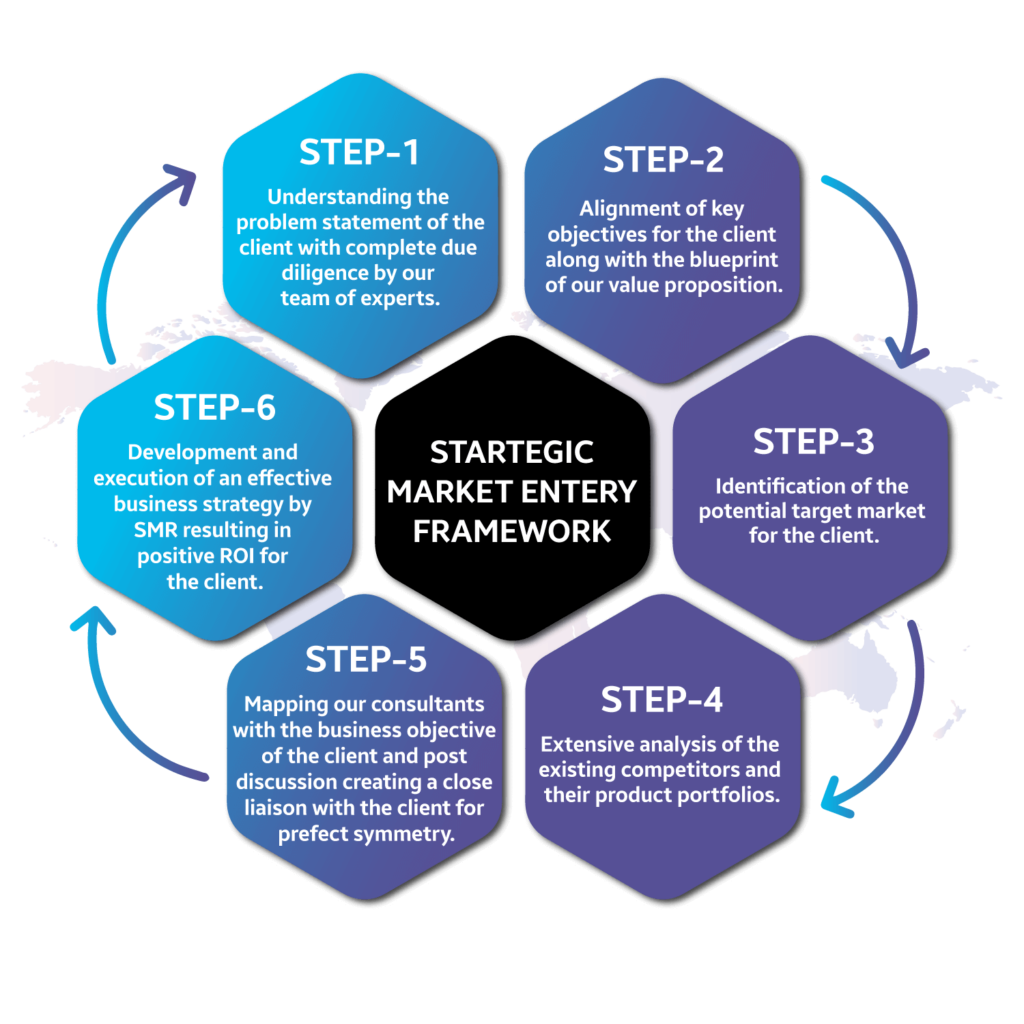Are you a problem-solver with a passion for helping others succeed? Do you excel in any specific field with high knowledge and expertise? If so, starting a consulting business might be perfect for you!
- Types Of Consulting Business
- How To Start A Consulting Business With No Experience
- Pros and Cons of Starting a Consulting Business
- Best Consulting Business To Start for Beginners
- How Much Does It Cost To Start A Consulting Business?
- How To Register A Consulting Business In USA?
- How Do Consultants Make Money?
- How To Be Successful As A Consultant?
- Conclusion
- FAQs
But how do you begin? The answer is here.
First, we’ll help you identify your niche, where your skills meet market demand. Then, we’ll tackle the legal aspects, ensuring your business is set up correctly. Finally, we’ll explore marketing and networking strategies to build a strong client base.
So, if you’re ready to turn your consulting dreams into reality, let’s dive into how to start a consulting business and make it happen!
Types Of Consulting Business
Consulting is a dynamic and rewarding profession that allows you to leverage your skills and experience to assist businesses, individuals, and organizations achieve their goals.
But what types of consulting businesses can you start? Let’s explore some exciting options that will surely captivate your entrepreneurial spirit!
1. Management Consulting
Are you a natural-born leader with a knack for strategic thinking?
Through operations analysis, gap analysis, and the implementation of successful growth and success-oriented initiatives, management consultants assist businesses in enhancing their overall performance.
From small startups to large corporations, your expertise can significantly impact their bottom line.
2. Financial Consulting
If numbers are your thing, consider becoming a financial consultant.
As a financial consultant, you’ll help individuals and businesses make informed financial decisions, manage their investments, and plan for a secure future.

Whether it’s tax planning, retirement strategies, or investment advice, you will be valuable in guiding your clients toward financial success.
3. Marketing Consulting
Businesses require strong marketing techniques to stand out in the competitive market.
As a marketing consultant, you can assist companies in developing comprehensive marketing plans, identifying target audiences, and implementing innovative campaigns.
From digital marketing to brand positioning, your creative ideas will help businesses thrive in the ever-evolving marketing world.
4. IT Consulting
IT consultants are in high demand today. If you’re a tech whiz with a deep understanding of software, hardware, and network systems, you can provide valuable guidance to businesses needing IT solutions.
From cybersecurity to system integration, your expertise will keep companies running smoothly and securely.
5. Human Resources Consulting
Are you a people person passionate about fostering positive work environments?
Human resources consultants help businesses with everything HR-related, from recruitment and talent management to employee training and development.
Your expertise will ensure that companies have the right people in the right roles, increasing productivity and employee satisfaction.
6. Sustainability Consulting
With increasing awareness of environmental issues, sustainability consulting has gained significant importance.
Assist businesses in adopting eco-friendly practices, reducing their carbon footprint, and implementing sustainable strategies. From renewable energy solutions to waste management, your expertise can help companies become socially responsible while improving their bottom line.
These are just a few examples of the many consulting businesses you can start. The beauty of consulting is that it enables you to use your unique skills and passions to change the world significantly.
So, consulting might be the perfect path if you’re ready to break free from the ordinary and embark on an exciting entrepreneurial journey.
How To Start A Consulting Business With No Experience
Starting a consulting business with no prior experience might sound daunting, but it’s absolutely doable. You can thrive as a consultant with the proper mindset, determination, and comprehensive approach.
So, let’s discover how to start a consulting business with no experience.
1. Choose Your Niche
The first and foremost step on how to start a consulting business is choosing your niche. We have listed many above so you can review them again and decide what you like.
Think of your niche as your area of expertise, the field where you can offer valuable insights and solutions to clients. It’s like finding your unique corner in the vast consulting landscape. This step requires careful consideration of your skills, knowledge, and passion.
What are you truly good at? What topics or industries excite you?
Choosing a niche that aligns with your strengths and interests will allow you to enjoy your work and establish yourself as an authority.
It’s essential to remember that a clearly defined niche enables you to target a particular audience, differentiate yourself from the competition, and establish yourself as the go-to expert in your chosen sector.
So, take the time to explore different options, conduct market research, and find the niche that resonates with you and has growth potential.
2. Find Your Target Market
Your target market is the specific people or businesses most likely to benefit from your consulting services. It’s like finding a needle in a haystack, but you can start making a real impact once you find it.

You must understand your target market’s needs, challenges, and aspirations.
Conduct market research, analyze industry trends, and engage with potential clients to gain insights. By understanding your target audience, you can tailor your services, advertising campaigns, and techniques to appeal to them.
Remember, finding your target market is not just about reaching more people; it’s about getting the right people who truly value your offer.
3. Develop A Business Plan
Think of it as a roadmap to build a successful business.
A well-crafted business plan helps you define your goals, identify your target market, analyze the competition, and outline your marketing strategies. It also forces you to think critically about your financial projections, operational plans, and growth strategies.
By developing a comprehensive business plan, you will clearly understand your consulting business’s direction and set yourself up for success.

It serves as a blueprint that keeps you focused, organized, and accountable as you navigate the challenges and opportunities that lie ahead.
So, grab a pen and paper, and let your entrepreneurial spirit soar as you bring your consulting business to life through a well-thought-out business plan.
4. Create Your Brand and Website
Next is creating your brand and website.
Your brand is the face of your business, representing your expertise, values, and unique selling proposition. It sets you apart from your competitors and helps you establish credibility in the market.
Think about the message you want to deliver and the feelings you want to evoke in your target audience while creating your brand. Craft a compelling logo, tagline, and brand voice that resonates with your ideal clients.
Equally important is creating a professional website that showcases your expertise and services.
Your website is a digital platform, giving potential clients an idea of your consulting services. Make sure your website is visually stunning and user-friendly, as well as search engine optimized.
Communicate your services, highlight client testimonials, and provide valuable content demonstrating your knowledge and expertise. A well-designed website not only attracts clients but also builds trust and credibility.
Remember, your brand and website are powerful tools to help you make a lasting impression and stand out in the competitive consulting industry.
5. Set Up Your Office
Setting up a functional and professional office space is essential for running your consulting business efficiently.
Determine whether you need a physical office or if your virtual office will suffice.
Begin by selecting a dedicated space in your home or leasing a small office, ensuring it’s well-lit and organized. Invest in essential office equipment like a reliable computer, printer, and phone system to efficiently communicate with clients.
Create a comfortable and inspiring work environment by adding personal touches that reflect your brand and style. Consider setting up a professional website and email address to enhance your online presence.
By meticulously designing your office space, you’ll boost your productivity and create a welcoming atmosphere that instills confidence in your clients.
6. Legal and Regulatory Considerations
Before launching your consulting business, addressing legal and regulatory considerations is crucial.
These factors can significantly impact your success and ensure you’re operating within the boundaries of the law. The first step in starting a business is deciding on its legal structure, such as a limited liability company (LLC) partnership or sole proprietorship.
Each structure has its own set of legal requirements and tax implications, so it’s essential to research and consult with a legal professional to make an informed decision.
Also, you’ll need to get any necessary licenses or permits for your location or industry. Compliance with regulations, such as data protection and privacy laws, is vital, especially when handling sensitive client information.
By navigating these legal and regulatory considerations, you’ll establish a solid foundation for your consulting business and build trust with your clients.
7. Hire Employees
As your consulting business grows, you may need employees to support your operations.
While you may have yet to gain expertise, assembling a talented team can help you bridge the gap and deliver exceptional services to your clients. Begin by identifying the specific skills and knowledge you require for your consulting business.
Look for individuals with industry experience, problem-solving abilities, and a passion for learning. Consider conducting thorough interviews and assessments to gauge their suitability for the role.

Also, look for flexible candidates with strong communication skills who can work well in a team.
By carefully selecting and hiring the right employees, you can create a solid foundation for your consulting business and set yourself up for long-term success.
8. Price Your Services
Another crucial step in how to start a consulting business is pricing your service.
Determining the right price for your expertise can be challenging, but it’s essential for the success of your business.
First, thoroughly research the market and analyze the rates other consultants in your field charge. Consider your expertise, market demand, competition, and the value you provide to clients.
To fully understand the rates and industry standards, conduct market research. It’s essential to balance offering competitive rates and ensuring that your pricing reflects the quality and value you provide.
Also, consider your overhead costs, such as office space, equipment, and marketing expenses.
By carefully evaluating these factors, you can set a fair and attractive price for your consulting services, positioning yourself as a credible and valuable resource in the industry.
Remember, pricing is an ongoing process that requires adjustments as you gain experience and build your reputation.
9. Market Your Business
It would help if you implement effective marketing strategies to attract clients and establish your consulting business.
Marketing is pivotal in attracting clients, building brand awareness, and establishing credibility in the competitive consulting industry. For this step, you must craft a compelling marketing strategy tailored to your target audience.
Identify your unique selling point and what makes you stand out from the competition to start. To demonstrate your knowledge and interact with potential clients, use various marketing channels, including social media sites, business networking websites, and forums specific to your field.
Utilize the power of content marketing by producing educational blog posts, videos, or podcasts that showcase your expertise and offer your audience valuable insights.
Consider partnering with complementary businesses or offering free consultations to generate leads and establish trust. Effective marketing is about promoting your services, building meaningful relationships, and delivering exceptional value to your clients.
By implementing a well-rounded marketing strategy, you can position your consulting business for success and attract clients even without prior experience.
10. Provide Exceptional Service
Exceptional service goes beyond meeting client expectations; it means going the extra mile to exceed them.
To achieve this, you must focus on understanding your client’s needs and tailoring your services to address their specific challenges.
By actively listening and asking insightful questions, you can deeply understand their pain points and develop innovative solutions. Responsiveness and clear communication channels will help build trust and foster strong client relationships.
Also, continuously honing your skills and staying updated with industry trends will ensure that you offer your clients the most relevant and valuable advice.
Remember, exceptional service is not just about delivering results; it’s about creating an experience that leaves a lasting impression and compels clients to recommend your services to others.
11. Manage Finance and Growth
The final step on our list of how to start a consulting business is managing finances and growth.
As your consulting business grows, you must manage your finances effectively.
A detailed budget outlining your expenses, projected revenue, and potential investments is essential to manage your finances effectively. This will help you analyze your cash flow and make informed financial decisions.

Consider establishing a business bank account to separate your personal and professional finances. As for expanding, focus on creating a solid network by attending industry events, joining groups, and using social media.
Collaborate with other consultants or businesses to expand your reach and gain valuable insights. Attend courses and webinars, or gain the qualifications to enhance your professional development.
By managing your finances wisely and actively seeking growth opportunities, you can lay a solid foundation for your consulting business and pave the way for long-term success.
By following the steps outlined in this section on how to start a consulting business, you can lay a solid foundation for your consulting business and position yourself for long-term success.
So, take the leap, embrace the challenges, and confidently embark on your consulting journey!
Pros and Cons of Starting a Consulting Business
Running a consulting business is like riding a roller coaster. It has its ups and downs. And if you’re considering leaping into the consulting world, weighing the pros and cons is crucial.
So let me break down the pros and cons in simple terms so you can decide if it’s the suitable ride for you:
| Pros | Cons |
| You have the freedom to set your schedule and choose your clients. | Starting a consulting business can be financially unpredictable, especially in the beginning. |
| You can leverage your specialized knowledge and skills to provide valuable advice to clients. | The consulting industry is highly competitive, and standing out among other consultants can be challenging. |
| Consulting allows you to work on diverse projects and industries, keeping your work exciting and engaging. | Finding and acquiring clients can be time-consuming and require significant effort. |
| As a consultant, you constantly learn and grow by tackling new challenges and expanding your knowledge. | You are responsible for the success or failure of your consulting business, which can be stressful. |
| You can decide and shape your business according to your vision and values. | A consulting business often involves long hours and a heavy workload, especially during peak periods. |
| Successful consultants can earn a substantial income, especially when working with high-paying clients. | Starting a consulting business may require significant upfront investment in marketing, technology, and professional development. |
As said, starting a consulting business can be thrilling and rewarding, but it’s essential to consider both the pros and cons.
By weighing these factors and planning accordingly, you can set yourself up for success in the dynamic consulting world.
Best Consulting Business To Start for Beginners
Starting a consulting business as a beginner is exciting, but choosing a niche that aligns with your skills, interests, and market demand is crucial.
Here are a few options for consulting businesses that are well-suited for beginners:
1. Digital Marketing Consulting
Engage in the ever-evolving world of digital marketing.
Small businesses and startups constantly seek guidance on navigating the digital landscape. Offer services like social media marketing, content strategy, and SEO optimization.
You’ll help clients boost their online presence and drive growth, all while honing your digital skills.
Example: Neil Patel is a well-known figure in the digital marketing industry. He provides digital marketing consulting services; his blog and YouTube channel offer free content.

He has worked with major companies, and his consulting business is a significant source of revenue. As of 2022, Neil Patel’s net worth was around $30 million.
2. Business and Career Coaching
Unlock the potential of individuals and companies by becoming a business or career coach.
Guide professionals to achieve their goals, improve leadership skills, and navigate career transitions. This business doesn’t require substantial upfront investment and offers the satisfaction of watching your clients succeed.
Example: Tony Robbins is a renowned business and life coach who has worked with countless individuals and companies to help them succeed.

His seminars, books, and coaching services have made him prominent in the personal development industry. He has built a successful business and is estimated to have annual revenue of $7 billion.
3. Financial Consulting
Money matters are always in demand. If you have a background in finance or accounting, offer financial consulting services to individuals or small businesses.
Help them manage budgets, plan for retirement, or make informed investment decisions. Financial security is a top priority, so your expertise will always be sought after.
Example: Denzel Rodriguez, a 24-year-old financial consultant, generates a monthly income of $20,000. His primary offering involves educating individuals on Velocity Banking and Infinite.

Banking assists people in accelerating debt repayment, improving their credit, enhancing cash flow, and rapidly accumulating wealth.
4. Health and Wellness Consulting
As people become more health-conscious, there’s a growing demand for health and wellness consulting.
Become a certified nutritionist, fitness coach, or wellness advisor. Guide clients towards healthier lifestyles and enjoy the fulfillment of helping them achieve their wellness goals.
Example: Joe Cross is a wellness consultant and filmmaker who gained fame through his documentary “Fat, Sick & Nearly Dead.” He documented his journey of losing weight and improving his health through juicing and plant-based nutrition.
After the documentary’s success, Joe established a wellness consulting business and website offering nutrition and weight loss guidance. According to sources, Joe Cross has a net worth of $2 million.
5. Content and Copywriting Consulting
Content is king in the digital age.
Consider offering content and copywriting consulting services if you have a way with words. Assist businesses in crafting compelling content that drives engagement and conversions.
Your skills in storytelling and persuasion can be invaluable to your clients.
Example: Darren Rowse, the creator of ProBlogger.net, is an accomplished Australian blogger, speaker, and consultant, a prime example of content writing success.
In 2002, he embarked on his blogging journey across various platforms, and today, his blogs attract millions of monthly visitors. Through his insightful blogs, he imparts his extensive expertise in content writing, leaving an indelible impact on and motivating countless individuals worldwide.
Sources indicate that he earns a monthly revenue of $20,000, showcasing the impact of his expertise and dedication in the field.
Remember, the key to consulting success is continually upgrading your skills and adapting to changing market demands. Building a solid reputation and a network of satisfied clients will pave the way for your consulting business to thrive.
So, pick a niche that aligns with your passion and expertise, and embark on your journey as a consultant with enthusiasm and determination.
Whichever niche you choose, focus on building strong relationships and delivering exceptional value to your clients. Starting small and gradually expanding your services can be an excellent approach for beginners in the consulting world.
How Much Does It Cost To Start A Consulting Business?
Now that you know how to start a consulting business, you should also consider how much it costs to start one.
Starting your own consulting business is exciting, but like any entrepreneurial endeavor, it requires a solid financial foundation.
So, how much does it cost to start a consulting business?
Well, the number can vary, but here’s the exciting part – it’s more affordable than you might think. You can turn your expertise into a successful consultancy business even with a small budget.
Let’s break down your expenses in starting a consulting business.
- Legal Formalities: $500 to $1500
- Digital Presence: $500 to $2000
- Marketing and Branding: $500 to $2000
- Technology and Tools: $300 to $1000
- Working Space: $100 to $500 per month
- Insurance: $500 to $2,000 annually.
- Operating Expenses: $100 to $500 per month.
Total Investment: Approximately $2800 to $10,000
Starting a consulting business can be rewarding, but it’s important to budget wisely and plan for initial and ongoing expenses to ensure long-term success.
With dedication, thoughtful planning, and a bit of entrepreneurial spirit, you can turn your consulting dream into a reality without breaking the bank. So, what are you waiting for?
How To Register A Consulting Business In USA?
Registering a consulting business in the USA may seem like a maze of paperwork and regulations, but fear not! It’s a journey worth taking to turn your consulting dreams into a reality.
So, let’s dive in and explore how to register your consulting business in the USA.
Step 1. Choose A Business Structure
As discussed in step 6 of how to start a consulting business, you must decide on a legal structure before registering your consulting business.
Closely look into each structure, its benefits, and drawbacks. Take the time to research and choose the one that best suits your needs.
Step 2. Pick A Name For Your Business:
Your business name is your brand identity, so make it memorable and reflect your consulting services.
Ensure the name is unique and not already in use by another business. You can determine whether your selected name is available through a trademark database or the Secretary of State’s website.
Step 3. Apply For An EIN
Next is applying for an EIN.
An Employer Identification Number (EIN) is like a social security number for your business. It’s necessary for tax purposes and opening a business bank account.
The Internal Revenue Service (IRS) website makes it easy for you to apply for an EIN online.
Step 4. Apply For Business Licenses
You may need to obtain specific business licenses or permits based on your location and the nature of your consulting services.
Research the requirements at the federal, state, and local levels to ensure compliance. This step ensures that you operate legally and protects your business from penalties.
Step 5. Register With State Agencies
Next step is registering your business.
Registering your consulting business with state agencies is essential for legal compliance.
This typically includes filing the necessary paperwork with the Secretary of State’s office or a similar agency. The registration process may vary depending on your chosen business structure.
Step 6. Open A Business Bank Account
It’s essential to keep your personal and business finances separate for accurate bookkeeping and legal protection.
Open a business bank account to keep your consulting business’s finances organized. This will also make tracking income, expenses, and tax obligations easier.
Step 7. Understand Your Compliance Requirements
Familiarize yourself with the compliance requirements specific to your consulting business.
This may include obtaining professional certifications, adhering to industry regulations, and maintaining proper documentation.
Staying compliant ensures the smooth operation of your business and builds trust with clients.
Step 8. Understand Your Tax Obligations
As a business owner, understanding your tax obligations is vital.
Consult with a tax professional or the IRS to determine your federal, state, and local tax requirements. This includes income tax, self-employment tax, sales tax (if applicable), and other taxes specific to your industry.
Registering your consulting business is a crucial step towards establishing a solid foundation. Embrace the process enthusiastically, seek guidance when needed, and stay organized.
By completing the necessary legal and financial requirements, you’ll be well on your way to running a successful consulting business in the USA.
How Do Consultants Make Money?
After understanding how to start a consulting business, you must be curious about how much consultants make.
As a consultant, there are several ways to make money while providing valuable expertise and guidance.
Here are a few points on how you can monetize your consulting services:
| Hourly Rate | $100 and $300 |
| Project-Based Fees | $5,000 to $10,000 |
| Retainer Agreements | $2,000 to $10,000 |
| Performance-Based Compensation | 10-20% of the revenue of a company or business |
| Training and Workshops | $100 to $1,000 |
1. Hourly Rate
One common approach is to charge your clients hourly for your services.
This makes it possible for you to receive payment for the time and effort you devote to assisting your clients in achieving their objectives.
Hourly fees can change depending on the project’s complexity, industry, and experience level. The standard hourly rate for consultants is between $100 and $300.
2. Project-Based Fees
Instead of charging by the hour, you can also set project-based fees.
This method involves calculating the time and resources needed to do a particular project and establishing a fixed cost for the entire engagement.
Project-based costs can vary from $5,000 to $10,000, based on the nature and scope of the project.
3. Retainer Agreements
Retainer agreements are a great way to gain a steady income stream as a consultant.
With a retainer, clients pay a fixed monthly fee to retain their services on an ongoing basis. This arrangement allows you to provide continuous support and advice to your clients while ensuring a predictable income for yourself.
Retainer fees vary widely but typically range from $2,000 to $10,000 monthly.
4. Performance-Based Compensation
In some cases, you can discuss a compensation arrangement based on performance with your clients. This implies that your charges are directly linked to the outcomes you assist your clients in attaining
For example, if you help a company increase its revenue by $1 million, you can charge 10-20% of that amount, resulting in $100,000 to $200,000 in fees.
Performance-based compensation can be a win-win situation, aligning your interests with your client’s success.
5. Training and Workshops
You can share your expertise with a bigger audience by providing training sessions, workshops, and one-on-one counseling.
You can charge participants for these sessions and conduct them in person or online.
Depending on the topic and duration of the training, fees can range from $100 to $1,000 per participant.
The figures listed above are only approximate ranges and may differ significantly based on your experience, the nature of your business, location, and the particular requirements of your clients.
Evaluating your unique value proposition, market demand, and competitive landscape is crucial to choosing the best pricing plan for your consulting services.
How To Be Successful As A Consultant?
Becoming a successful consultant is an exciting journey that requires skills, strategies, and a passion for helping others. Here are a few tips to help you thrive in the world of consulting after you’ve learned how to start a consulting business:
1. Specialize and Stand Out
Identify a niche or expertise that aligns with your passion and strengths to set yourself apart from the competition.
You can establish authority and draw clients who value your unique knowledge and ideas by specializing in a particular area.
2. Build a Strong Network
Networking is a powerful consultant tool. Attend industry events, join professional associations, and connect with like-minded individuals.
Develop connections with potential clients, colleagues, and mentors who can offer guidance, referrals, and opportunities for collaboration.
3. Deliver Exceptional Results
Your reputation as a consultant depends on the value you bring to your clients. Try to go above and beyond expectations and constantly produce extraordinary results.
You’ll build a strong reputation and generate positive word-of-mouth referrals by consistently providing high-quality work.
4. Continuously Learn and Adapt
As the consulting industry constantly changes, keeping up with market trends, new technology, and best practices is essential.
Develop your professional skills by attending workshops, conferences, and online courses. Have a positive mindset and be willing to adjust your strategies to suit your client’s needs.
5. Develop Long-Term Relationships
In addition to concentrating on particular projects, building long-lasting connections with your clients is key to successful consulting.
Keep these connections strong by being available for them whenever they need you, keeping in touch, and giving value beyond the initial interaction.
Your customers are more likely to recommend you to their friends and become repeat customers if they are happy with your services.
6. Embrace Technology
Use technology to improve productivity, create a seamless client experience, and simplify your consulting processes.
To streamline your workflow and give your clients data-driven insights, use project management systems, collaboration platforms, and data analytics.
7. Market Yourself Effectively
Create a powerful online presence and a solid personal brand. You can advertise yourself by writing blog posts, informational articles, and content for social media.
Increase your customer base using digital marketing methods, including social media advertising and SEO.
Success as a consultant is not just about financial gains but also about positively impacting your clients’ businesses.
By continuously honing your skills, building relationships, and delivering exceptional value, you can be successful in the consulting field and create a fulfilling and prosperous career.
Conclusion
Starting your consulting business can be an exhilarating journey with opportunities to share your expertise and make a meaningful impact.
By following these essential steps on how to start a consulting business, from choosing your business structure to understanding compliance requirements, you’ll set a strong foundation for success.
Remember, your journey can be challenging sometimes, but your dedication and passion will propel you forward in the dynamic consulting world.
FAQs
1. Do I need insurance for my consulting business?
While it’s not always legally necessary, business insurance, such as professional or general liability insurance, can save you from legal and financial issues.
2. Can I run my consulting business from home?
Yes, many consultants operate from home offices to reduce overhead costs. However, check local zoning regulations and obtain any necessary home occupation permits.
3. How do I come up with a unique business name?
Brainstorm names that reflect your consulting services, are easy to remember, and aren’t already trademarked by another entity. You can also check with your state’s business registration office for name availability.
4.Do I need a particular degree or certification to start a consulting business?
It depends on your consulting niche. While some areas may require specific qualifications, many consulting businesses rely on expertise and experience. Certifications and degrees can enhance your credibility but are optional.
5. What is the biggest challenge when starting a consulting business?
One of the biggest challenges is often client acquisition. Establishing a solid client base and developing a steady income stream can take time. Effective marketing and networking can help overcome this challenge.



![21 Worst Shark Tank Failures And Why They Failed? [2024] 11 Shark Tank Failures](https://thehustlestory.com/wp-content/uploads/2021/11/Shark-Tank-Fails-Blog-Banner-2.jpg)



good startup idea, to attend consultant Courses and to develop personal development in this regard.